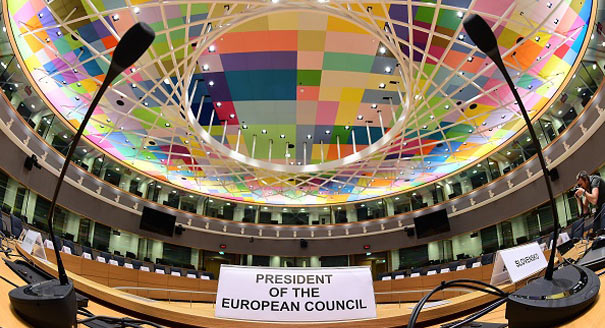With few exceptions, governments across Europe do not like Donald Trump’s policies. As he prepares to enter the White House, the U.S. president-elect has already spoken extensively about making America great again. In particular, his economic policies seem protectionist, and his foreign policy, particularly with regard to Israel and Russia, will pose serious challenges to the EU. But instead of moaning about what is still Europe’s greatest ally, EU leaders should respond to the new administration in several ways.
These responses are not about countering U.S. influence, which would be impossible in any case. They are about understanding why and how the EU has to become a serious player in its own right and stop wanting the United States to keep fixing things. It’s time the EU started fixing its own house.
First are defense and security. Because the EU is not going to have its own viable defense structures in the foreseeable future, the European members of NATO will have to spend more on defense. This is about protecting their own citizens and their democracies.
This cannot be overestimated. The European allies have to be able to defend NATO’s Eastern and Southern members—not simply use the rhetoric of reassurance. Whether it is against Russian hybrid warfare, terrorism, or cyberattacks, NATO’s European allies, along with the EU, have to step up their cooperation and capabilities.
Second, the EU and NATO have to spell out their goals for their Eastern neighbors. Economic support for Ukraine and closer ties with Moldova and Georgia are not enough. These moves have to be underpinned by a political commitment that sets out the objective of the EU’s relationship with these neighbors. Postponing this issue will lead to a vacuum that Russia is all too keen to exploit and fill to ensure that this region will be Russia’s sphere of influence, not Europe’s.
Third, if Trump is true to his word about moving the U.S. embassy in Israel from Tel Aviv to Jerusalem and supporting Israeli Prime Minister Benjamin Netanyahu’s settlement policy, one can only guess how the Palestinians will react.
The EU, which has played a miserable role in the Middle East and given billions of euros of aid to the Palestinians without much political impact or strategy, will be reduced to damage limitation. In practice, this means promoting stabilization policies that would focus on economic, social, and judicial issues. The EU’s influence will continue to be extremely limited.
The fourth issue is trade. The EU is in no position to adopt protectionist policies, even though that has been the reflex of populist and antiglobalization movements. Many member states that pay lip service to a more open trade policy oppose ratifying important trade agreements with Canada, Japan, Singapore, and, in the future, New Zealand. They want to protect their own markets.
But trade is not only about reducing tariffs; it is also about influence. Trade is about consolidating ties with like-minded countries, such as Canada and New Zealand, that hold the same values as Europe.
If Trump wants to pursue his protectionist policies, the EU should exploit that by speeding up trade accords. Yes, national parliaments will be able to veto such deals if they step outside the powers of the European Commission, which has the exclusive right to negotiate and implement trade accords provided they are only trade-related. But the commission has tended to stick to its powers rather than go for so-called mixed agreements that require member-state involvement. This is a big opportunity for the EU to counter U.S. protectionism. It is a big opportunity to knit alliances.
Finally, it’s time for EU leaders in Brussels to remind all member states why the EU was founded and what it is based on. It is a community of values based above all on solidarity and tolerance, media freedom, decency, and human rights. This is why countries—whether former fascist states or those with a military junta such as Spain, Portugal, and Greece or the former Communist states of Central and Eastern Europe—joined the EU in the first place. They knew they were delegating some of their sovereignty to Brussels in return for a special kind of solidarity.
If Poland, Hungary, or other countries reject these values, then they should pay some price in terms of access to the EU’s structural funds for poorer regions or even voting rights. Despite its remoteness from citizens and its inability and unwillingness to get out of the Brussels bubble, the EU cannot afford for its members to reject the fundamental values that they signed up to. And if EU leaders such as Czech President Miloš Zeman have praise only for the Russian president, Vladimir Putin, EU leaders should ask why.
In short, whining about Trump only gives the impression that the EU knows better or has the moral high ground. Both have still to be proved.






.jpg)